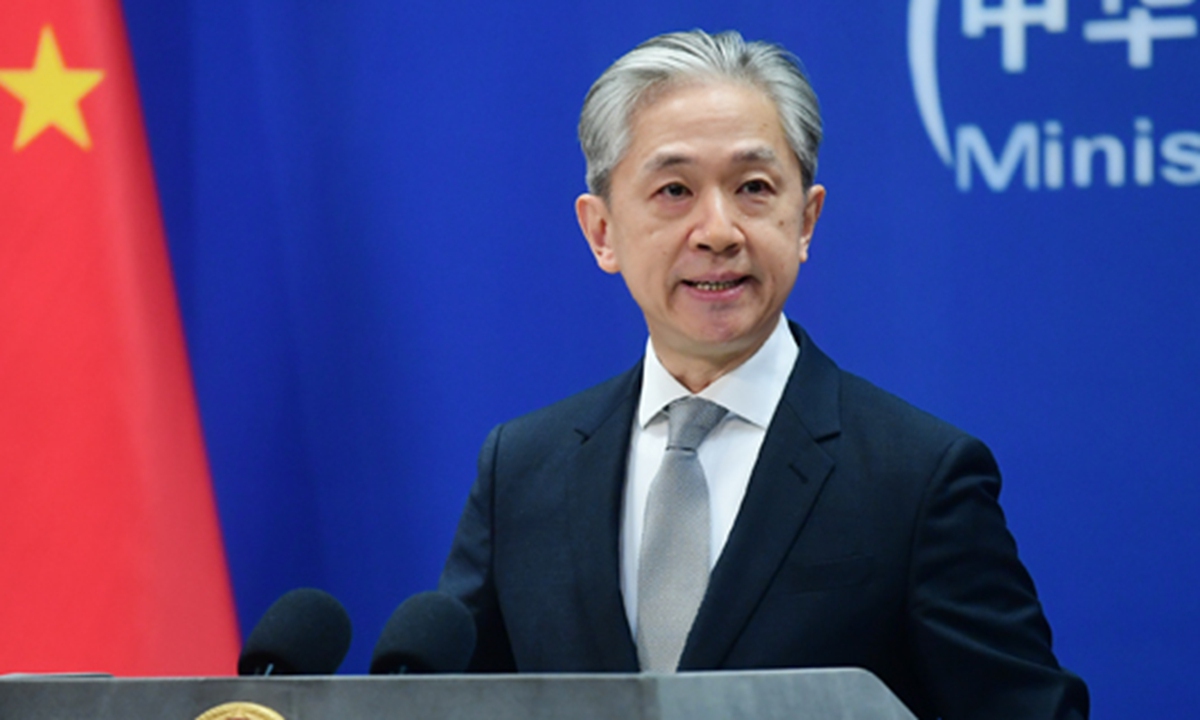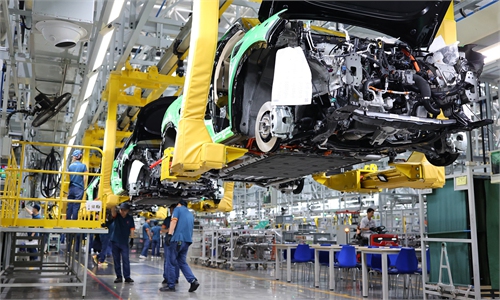US weights increasing tariffs on Chinese EVs, revealing more of ‘American protectionism’: FM

Chinese Foreign Ministry spokesperson Wang Wenbin Photo: mfa.gov.cn
Chinese Foreign Ministry spokesperson Wang Wenbin on Thursday said China firmly opposes an upgraded version of "American protectionism" based on media reports claiming that the US is considering increasing tariffs on Chinese-made electric vehicles.
The remarks came after the Wall Street Journal on Thursday reported that the Biden administration is weighing raising tariffs on some Chinese goods, including electric vehicles, citing people familiar with the matter.
Wang said that China firmly objected to the move and call it an upgraded version of "American protectionism."
Wang said that China urges the US side to abide by the rules of the WTO, providing a level playing field for businesses from all countries.
China will closely monitor the situation and take necessary measures to safeguard its legitimate rights and interests, Wang said.
"It is a sheer protectionist move to protect the new-energy vehicle market in the US by trying to shutting the door on Chinese EVs," Tian Yun, a Beijing-based economist, told the Global Times on Thursday. Tian said that the development of China's new-energy vehicles is at the forefront of global competitiveness.
From January to November, China’s export of automobiles reached 4.412 million units, a year-on-year increase of 58.4 percent. Among them, the cumulative exports of new-energy vehicles reached 1.091 million units, a year-on-year increase of 83.5 percent.
Imposing additional punitive tariffs would hinder the development of the US’ own EV market, experts said.
Shutting its door to foreign brands will impede the development of the electric vehicle industry in the US, rendering it behind the most advanced global manufacturing standard, Zhang Xiang, president of New Energy Vehicle Technology Research Institute, Jiangxi New Energy Technology Vocational College, told the Global Times.
It is detrimental to the long-term prospects of the US’ EV industry, Zhang said.
The proposed additional tariffs represent efforts by the US to protect its new-energy vehicle sector after it passed the Inflation Reduction Act (IRA) last year, experts said.
China had publicly expressed concerns about the unfair and discriminatory measures taken by the US when it passed the IRA, Wang said.
The measures taken under the pretext of national security are pursuing "America First," go against the principles of market economy and fair competition, posing a threat to global supply chains. It's blatant trade protectionism, violating WTO principles, Wang said.
The $437 billion IRA, which was passed in last August, included funding for consumer tax credits to offset the cost of EVs. But to qualify for the tax credits, carmakers must complete vehicle assembly in North America and source a significant percentage of major battery components, including metals like lithium, nickel and cobalt, from the US or countries that have free trade agreements with the US.

